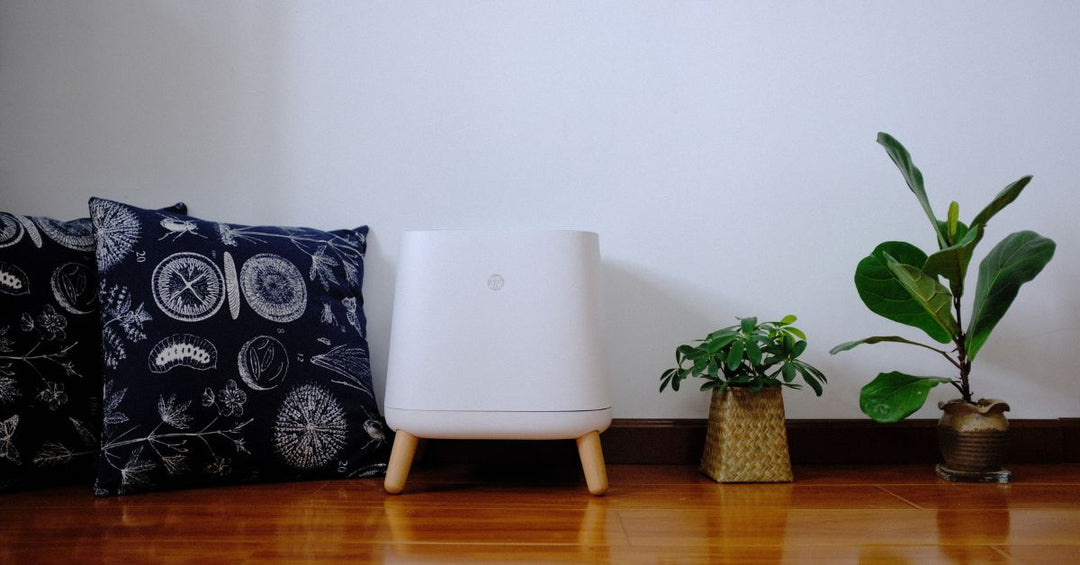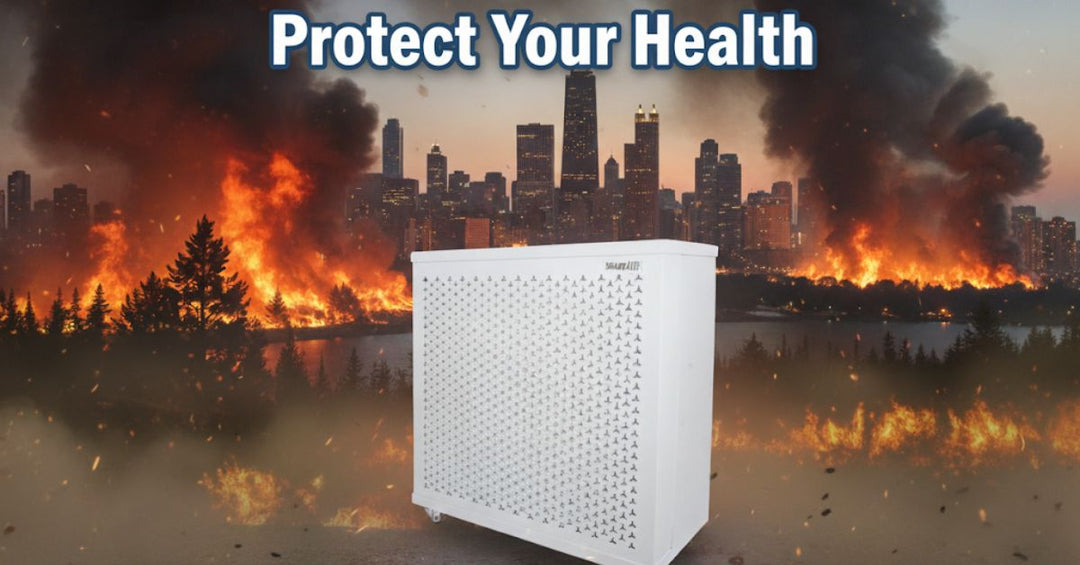How HEPA Air Purifiers Mitigate Harm During Wildfires

Wildfires are a recurring challenge in areas prone to hot, dry conditions. Beyond the immediate danger of flames, the smoke, fine particulate matter, and toxic gases released into the air have devastating effects on human health and the environment.
Smoke from wildfires can travel hundreds of miles, infiltrating residential neighborhoods, schools, and commercial spaces. Many people turn to air purification systems as a defense, with HEPA air purifiers standing out as a critical tool for improving indoor air quality during these events. Identify how HEPA air purifiers mitigate harm during wildfires and ways you can leverage their benefits.
The Impact of Wildfires on Air Quality
Wildfire smoke is a complex mixture of gases and particulate matter (PM) that comes from burning vegetation, building materials, and other substances. One of the biggest concerns is PM2.5, which are tiny particles that are 2.5 micrometers in diameter or smaller.
These particles are small enough for deep inhalation into the lungs, where they can cause respiratory and cardiovascular issues. Prolonged exposure raises the risk of asthma, bronchitis, and long-term conditions such as lung cancer and heart disease.
Besides PM2.5, wildfire smoke also contains gases such as carbon monoxide, volatile organic compounds (VOCs), and carcinogenic chemicals such as benzene. When combined, these pollutants create a hazardous environment that makes it difficult to breathe, especially for children, senior adults, and individuals with preexisting health conditions.
Vulnerable Indoor Spaces
While staying inside with closed doors and windows is common advice during wildfires, this isn’t enough to prevent exposure to harmful pollutants. Smoke seeps into homes, offices, and schools through gaps in windows, doors, and ventilation systems. Even when indoor air appears clean, it may contain wildfire byproducts. This is why a reliable air purification system, such as a HEPA air purifier with a carbon filter, is essential.
How HEPA Air Purifiers Work
HEPA, or high-efficiency particulate air, refers to a filtration standard capable of capturing 99.97 percent of airborne particles 0.3 microns in size. HEPA air purifiers use mechanical filtration, meaning they physically trap contaminants inside fine, dense fibers.
HEPA filters are designed and tested to capture particles as small as 0.3 microns—often referred to as the “most penetrating particle size.” Why 0.3 microns? Because these particles are the hardest to trap. Larger particles are easier to catch since they travel in a straight path and get intercepted by the dense HEPA fibers, with a capture rate of more than 99.97%.
Interestingly, particles smaller than 0.3 microns are also efficiently captured. Instead of moving in a straight line, they zigzag unpredictably due to a phenomenon called Brownian motion, which makes them collide with and stick to the fibers. This means HEPA filters are highly effective across the entire spectrum of airborne pollutants—large and small alike.
During wildfire season, it’s essential to pair a HEPA filter with an activated carbon filter for the best protection. While a HEPA filter excels at removing fine particulate matter from smoke—such as ash, soot, and other microscopic debris—it can’t capture gases. That’s where the carbon filter comes in. Activated carbon is highly effective at adsorbing harmful gases and VOCs released during wildfires.
By using both filters together, you create a powerful defense system that tackles both the particles and the gases in wildfire smoke, giving you cleaner, safer air to breathe.
Reduction of Allergens and Toxins
Wildfire pollutants exacerbate symptoms for people with allergies, asthma, or other respiratory sensitivities. HEPA air purifiers mitigate harm during wildfires by reducing the load of allergens and toxic substances in the air, providing significant relief for these individuals.
Constant Air Circulation
High-quality HEPA air purifiers from reputable distributors such as Smarter HEPA do more than just filter the air; they also promote air circulation. While smoke tends to linger indoors without proper ventilation, HEPA purifiers keep the air flow dynamic, ensuring the continuous removal of contaminants.

Natural Disasters Beyond Wildfires and Their Effects on Air Quality
While wildfires represent one of the most severe sources of air pollution, other natural disasters can also wreak havoc on air quality. Events such as floods and tornadoes carry risks that benefit from the implementation of HEPA air filtration.
Floods and Mold Proliferation
Flooding creates the perfect conditions for mold to thrive. High humidity and trapped moisture in walls, carpets, and furniture allow mold spores to grow and release airborne particles that can cause respiratory irritation, allergies, and long-term health complications. Air purifiers with HEPA filters can significantly reduce the concentration of mold spores, improving air quality in flood-affected spaces as they dry out.
Tornadoes and Dust Exposure
Tornadoes and strong winds stir up massive amounts of dust, dirt, and debris into the air. Since dust contains a mixture of larger and finer particles, a HEPA air purifier is particularly effective in capturing this wide range of contaminants. It provides valuable protection in the chaotic aftermath of tornadoes when outdoor and indoor air can become inundated with pollutants.

Why HEPA Air Purifiers Are Important During Wildfires
Although air quality threats such as mold and dust from floods or tornadoes are significant, wildfire smoke demands a greater degree of vigilance due to its complexity.
Widespread Contaminants
Wildfire smoke can linger in the air over broad regions for extended periods. Even if you’re not near the fire itself, prevailing winds can carry harmful particulates into urban and suburban areas far from the source. A HEPA air purifier addresses this widespread contamination by targeting pollutants regardless of their origin.
Longer Exposure Periods
Unlike a single gust of smoke or pollutants that dissipate quickly, wildfires can last for days or weeks. Prolonged exposure increases health risks, making sustained clean air efforts within homes, schools, and workplaces essential.
Creating Safer Spaces in Emergency Conditions
During a wildfire emergency, evacuation is not always immediately feasible. Sheltering indoors becomes a necessity, and clean air is critical to staying safe in these situations. A HEPA air purifier can provide a substantial layer of protection by giving you valuable time until outdoor conditions improve or evacuation becomes possible.
Air Purifier Maintenance Tips
Keeping a HEPA air purifier in top working condition is essential for long-term air quality improvements. Replace filters according to manufacturer recommendations and monitor the device for signs of wear. Regular maintenance boosts effectiveness and ensures that the purifier continues to provide robust protection against wildfire smoke.
Choose the Right HEPA Air Purifier
Selecting the right air purifier requires careful consideration of factors such as room size, filter replacement frequency, and additional features such as activated carbon filters for odor reduction.
At Smarter HEPA, we provide a wide range of air purifiers that are suitable in size for traveling, bedrooms and apartments, and large-space coverage. No matter the size of your space, you’ll be able to implement a purifier to mitigate the dangers of wildfire smoke.
Investing in a HEPA air purifier offers a powerful solution to the challenges posed by deteriorating air quality during and after severe weather crises. With the capacity to effectively remove harmful pollutants, these systems provide a way to protect your health and promote resilience in the face of environmental challenges.




